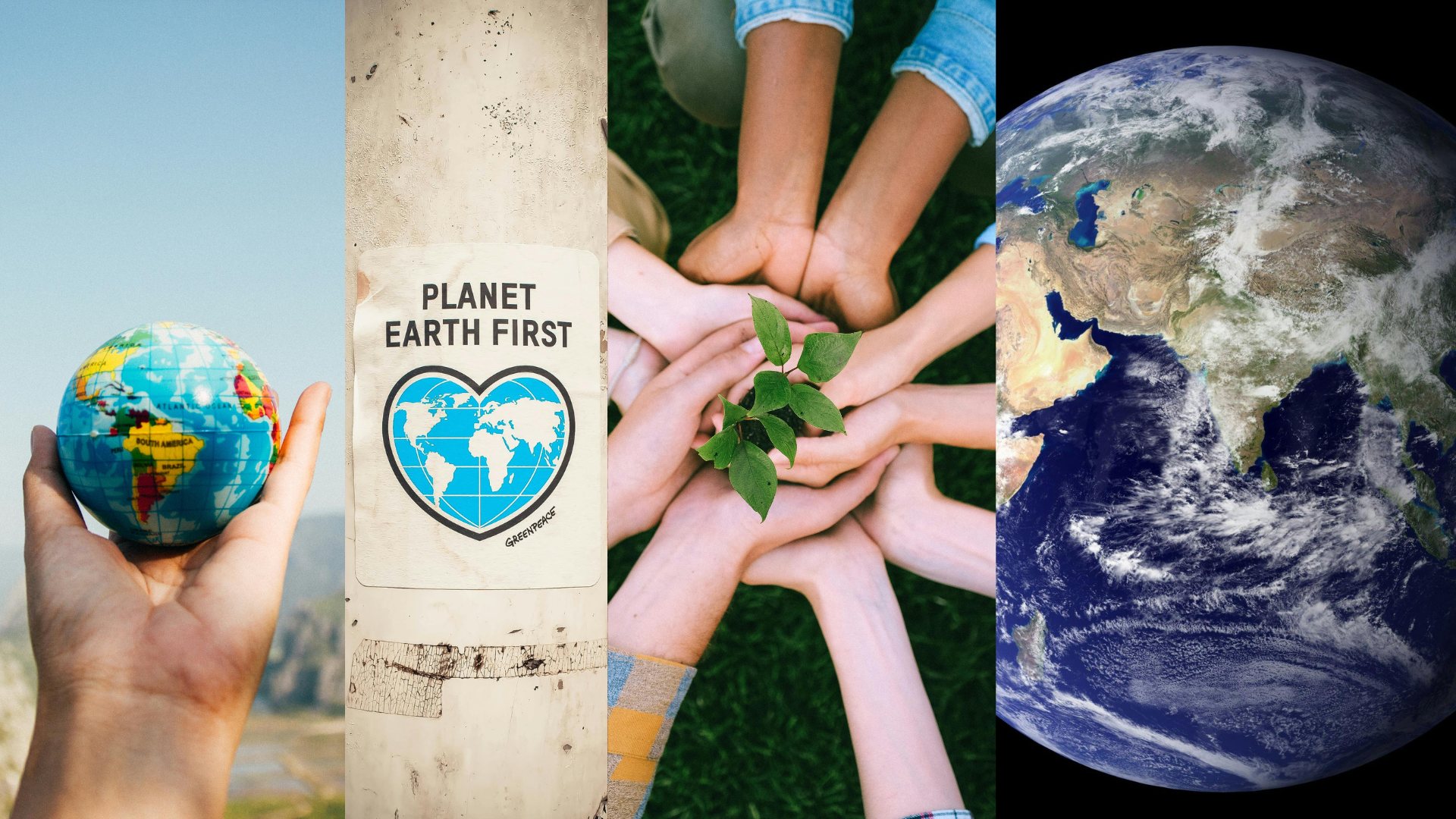THE EARTH DAY

Celebrating The Earth Day
It is estimated that millions of people in countries all over the world celebrate Earth Day every year on April 22nd. Earth Day seeks to encourage individuals to celebrate their environment, and to engage in activities that enable elevated environmental consciousness, actions to protect the environment and inspire making positive environmental change on Earth. Earth Day began as a grass-roots endeavor in the United States in 1970, and has grown to be recognized by over 190 countries as a global day, facilitating events to strengthen environmentalism, advocate for sustainability, encourage environmental protection, conserve natural resources, and pave the way for proper environmental stewardship.
Earth Day implores consciousness of the delicate nature of the planet as our home, and finite planets resources. With our ever-growing populations and industries and the interacting tension on ecosystems, it is crucial that we embrace and acknowledge the realities of climate change.
deforestation, pollution, the impact of industry and modifying our extreme consumption habits, and that we return some (if not all) of these resources back to the Earth; to sustain the world we live in, and to combat climate change.
It is a day in which we can stand back and take time to reflect and take action before it is too late to reverse damage done. No matter the importance of awareness, the real goal is to change habits and act, even if it is by small steps , baby steps, to seriously consider reducing carbon pollution footprint, supporting renewable alternative energy, voluntarily being a sustainable consumer in every-day life from using plant-based products, picking up used plastic water bottles and recycling, to becoming vegetarian/vegan, maybe! On this day and everyday, we can begin to take part in the encouraged response to creating a healthier Earth.
The History of Earth Day and its Evolution

Earth Day held its inaugural event in 1970, and was the brainchild of Wisconsin senator Gaylord Nelson whose aim was to raise public awareness of the environmental destruction caused by industrial pollution. The culmination of Nelson’s efforts resulted in an event which saw over 20 million people involved in the US and proved to be a watershed moment in the environmental movement. Since then Earth Day has become a worldwide affair, largely because it has the unique ability to bring people together, joining individuals across cultures, politics, ages and socio-economic statuses through the common cause of caring for and protecting our planet.
In 1990 Earth Day became a truly global event when more than 140 countries participated, and since then the event has acquired an enormous scale. Earth Day 2000 helped promote a Global Warming event that raised awareness of climate change as a global problem. Nowadays, Earth Day is NOT just about keeping awareness of global issues through single events – it’s about spurring action through – Legislative action, High level innovation, and most importantly the small daily actions we all take.
Earth Day was concentrated on environmental concerns relating to air, water, land pollution, waste management, and resource waste. Fast forward to now, and beyond environmental conservation Earth Day is moving the dialogue to surface high priority global issues like climate change, plastic pollution, waste, and biodiversity loss. Climate change, plastic pollution, and biodiversity loss have compounded over the previous 54 years and have also opened up a global awareness and mobilization that has generated some great global environmental movements and campaigns.
One of the major shifts is the growing call for climate justice. All around the world people are experiencing and being impacted by climate change differently, almost always with devastating impacts on the most vulnerable people of the planet. This brings together part social justice and part environmental activism, and Earth Day is working to elevate voices and include people from the most marginalized communities while creating equitable solutions; to ensure a just transition to a sustainable future for all.
Small, Everyday Actions That Add Up

Earth Day is a day that signifies momentum toward a more sustainable world , it is also a day to remind ourselves that each of us can consider our own small and daily commitments to impact the world around us. Sustainability is not a one-day activity, but a lifestyle choice that considers how we live on this planet sustainably over the preceding days, months and years. Here are a few activities you can incorporate into your lifestyle to become more Earth conscious:-
- Water Conservation
Water scarcity is a future global crisis. We can all eliminate our water consumption by taking showers that are a little bit shorter in length, making sure we’re not inadvertently using water to a higher level potential with leaks in the plumbing, and that we utilize water-efficient appliances. Even something small as turning off the tap while brushing your teeth can save you gallons of water in your day.
- Eat More Plant-Based
The food industry contributes to one quarter of the world’s total greenhouse gas emissions. In addition to attempting to eat less meat, we can all incorporate more plant-based days or meals to lessen the carbon footprint of our meals. Hopefully, a few plant-based meals a week can be The switch!
- Buy Less, Choose Wisely
Putting a halt to consumerism is a major factor in reducing the degradation of our environment. Before you purchase, ask yourself if you actually need the item. Prioritize quality over quantity, choose sustainable brands, and always consider a secondhand option. Taking the simple step of limiting consumption is one of the easiest things you can do to decrease the environmental footprint you have created in the world.
- Support Green Transportation
Whether it is walking, biking, taking a public transport, or driving an electric vehicle, reducing your use of fossil-fuel-powered vehicles drastically reduces your CO2 emissions. It is only in the last few years that more people have participated in eco-friendly modes of transport , especially with the availability of public transport, or biking located within urban areas.
- Engage in Activism
Earth Day is also about using your voice to advocate for change. Contact your local elected officials, attend rallies, and sign petitions in support of proposed policies that conserve the environment. By supporting even a single environmental organization or non-governmental organization, you are advocating for important issues, with a wider reach to ensure broad and significant acts remain on the political agenda.
Make Every Day Earth Day

As we commit to celebrate Earth Day, let us not forget the most impactful way to honor this day is to create daily habits that heighten awareness about our planet. Whether small sustainability decisions or large-scale activism, every action plays a role and just as Earth Day went from a day of awareness to a global movement we too, as individuals, can continue to change the ways in which we care for our planet.
Let’s make Earth Day a daily habit, a habit where we not only choose to live in the ways that support the flow of energy on the Earth but choose to advocate for protecting the Earth, its ecosystem, and its health for generations to come. Together we can thrive, not just survive.
As we celebrate Earth Day, we need to remember that we must always be in battle mode for sustainability for our future, but through working together we can make sure the next generation gets a planet as stunning, diverse and alive as the one we call home.
So, let us have every day be Earth Day. Let’s reduce our carbon footprint and protect our oceans, save our forests and take a moment to appreciate our planet we inhabit. Together we can be better stewards today, better stewards everyday.

